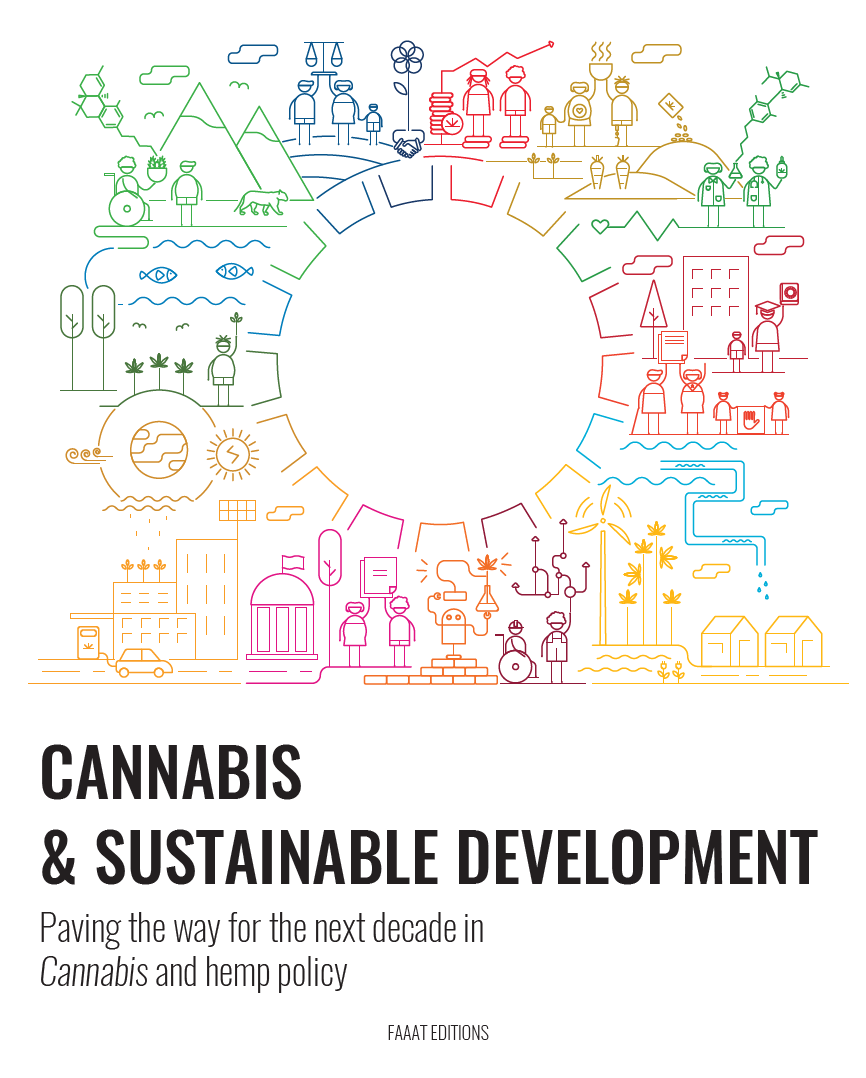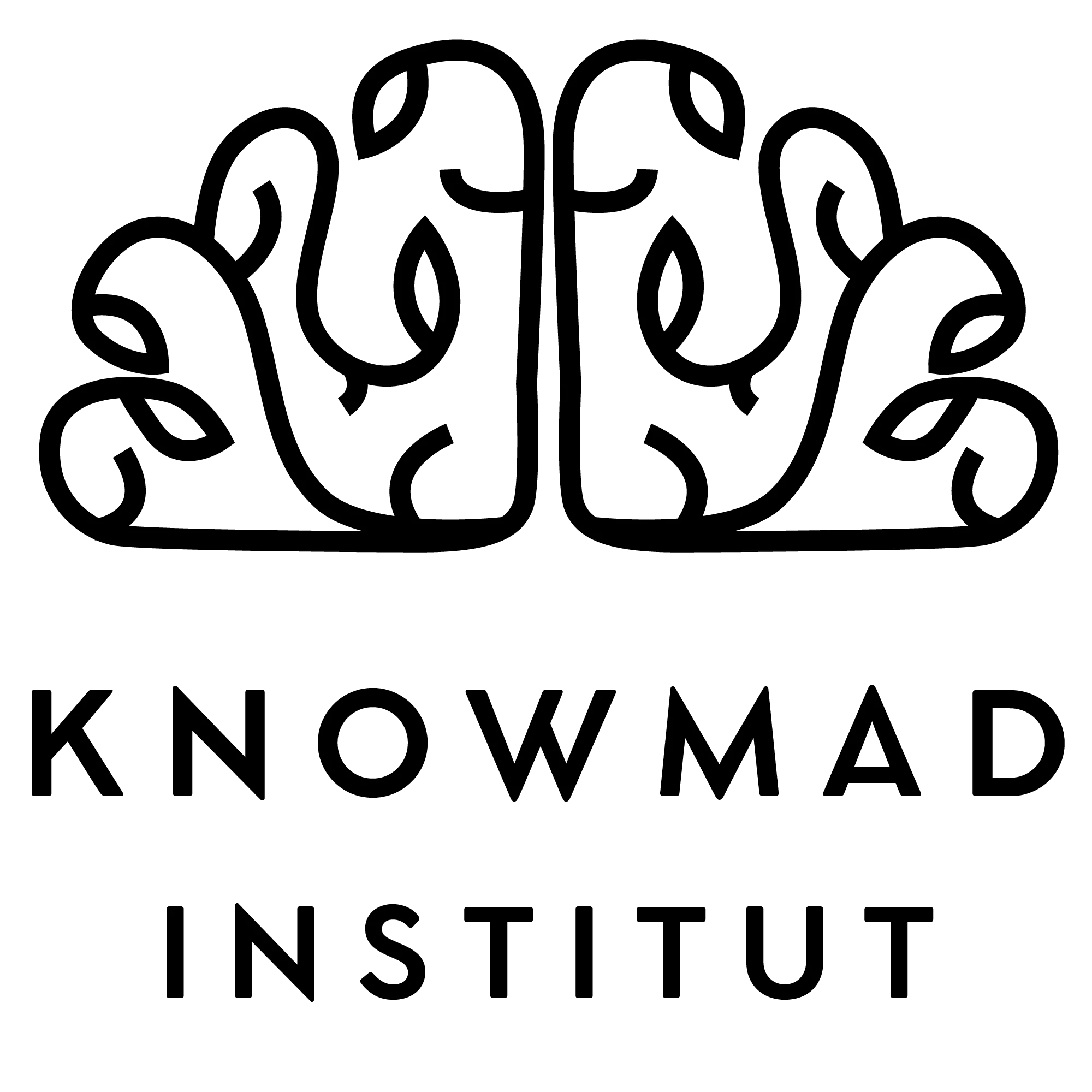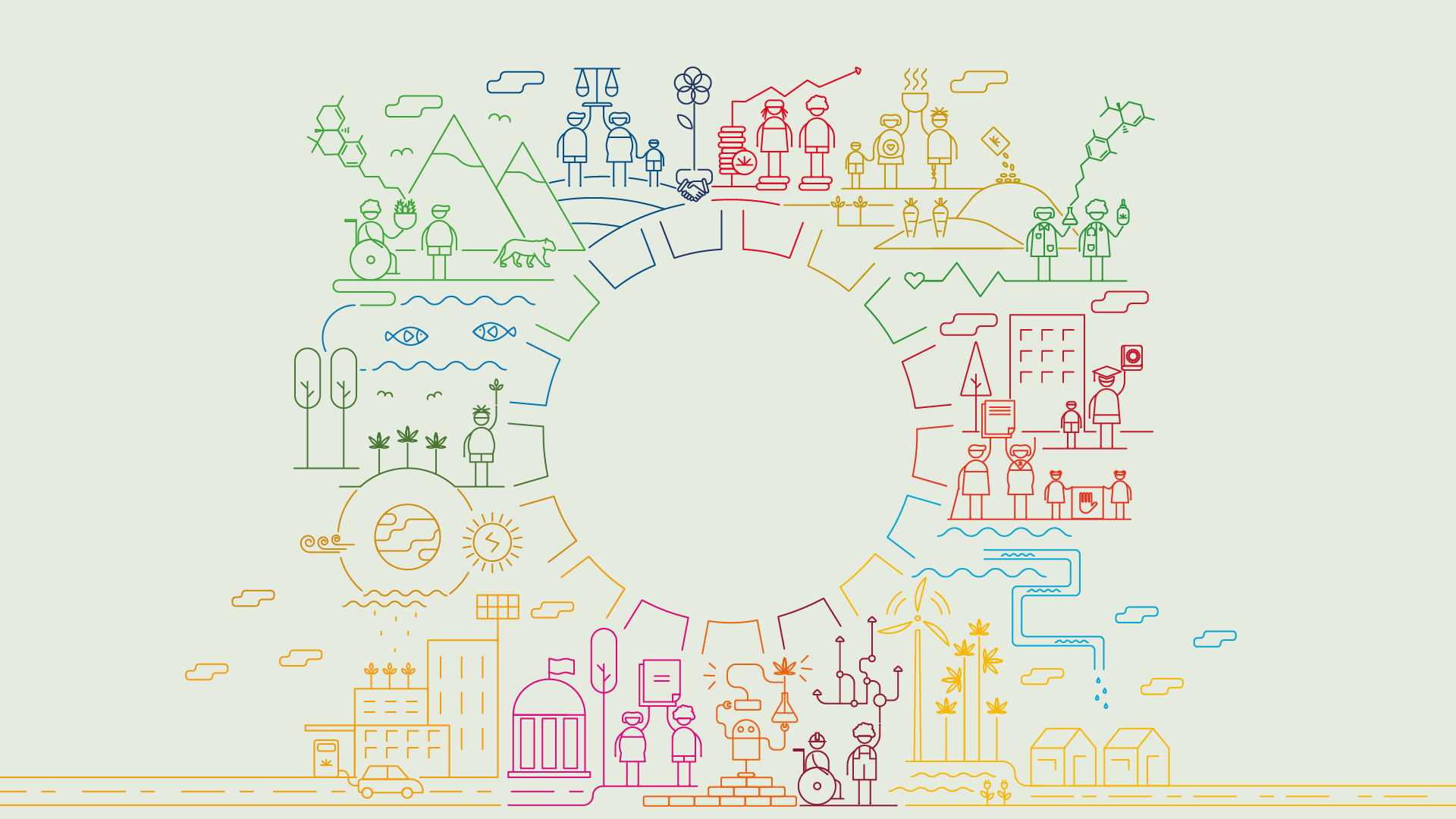The European Institute of Multidisciplinary Studies on Human Rights and Sciences – Knowmad Institut together with our sister organization For Alternative Approaches to Addiction, Think & Do Tank – FAAAT present:
Cannabis & Sustainable Development
Paving the way for the next decade in Cannabis and hemp policies.
Recommendations for the implementation of Cannabis policies aligned with international Human Rights
standards, the 2030 Agenda for Sustainable Development and the 2016 UNGASS outcome document.

Due to its characteristics, widespread cultivation and use, and diversity of its applications the Cannabis sativa L. plant directly pertains to at least 62 of the 169 targets found in 15 out of the 17 Sustainable Development Goals (SDGs). Surprisingly, this plant affects the SDGs both positively and negatively.
This report explains how the “hemp-issues” of Cannabis sativa L. (non psychoactivity-related uses) can contribute to meeting Goals 1, 2, 7, 9, 11, 12, 13 and 15, but also why reforming the current repressive, prohibitive, and marginalizing policies relating to “marijuana-issues” (psychoactivity-related uses of Cannabis sativa L.) is indispensable to meet Goals 3, 4, 5, 8, 10, 13, 16 and 17.
The Cannabis plant has accompanied humankind for millenia. It has provided food and numerous products derived from its fiber (various locally sourced and produced-materials). More recently, the plant has been explored for the soil-cleaning property of its roots and the significant biomass produced by the stems of the plant, a promising source of energy, a great building material and recyclable vegetative plastic. The plant has also been employed in all continents and throughout human history for use in medicine, spiritual ritual and recreation.
Current overly restrictive public policies addressing the psychoactive uses of the plant hinder the availability of the plant and its derivatives for medical purposes and prevent implementation of sound and sensible regulatory access frameworks. Repressive and authoritarian drug-control policies foster corruption, increase imprisonment rates, augment adverse social and health outcomes for people who use cannabis and generate innumerable human rights violations in particular among women, minorities, low income communities and indigenous peoples.
Reaching the Goals of the 2030 Agenda means adopting significantly different regulations to all aspects and
activities linked to the uses of the Cannabis plant, moving away from the artificial separation between “hemp” and “marijuana”. Scientists talk about Cannabis, farmers talk about hemp, politicians talk about marijuana, but none of them really get a clear picture of the ethnobotanical context of this plant. It is time for us all to get on the same page.
DOWNLOAD PDF








